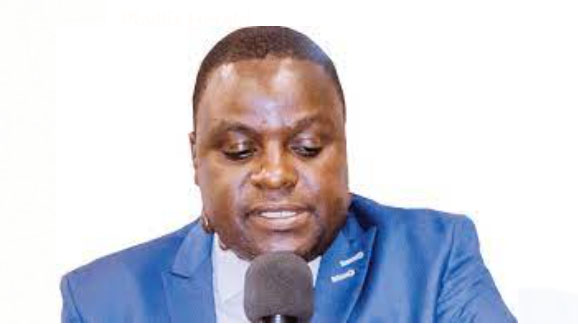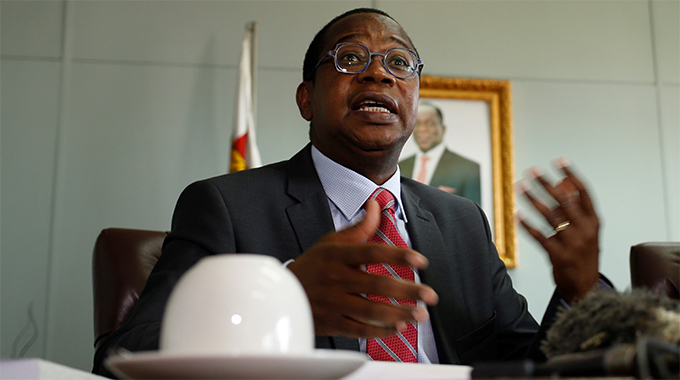Zacc chairperson decries corruption at VID

Elliot Ziwira Senior Writer
The Zimbabwe Anti-Corruption Commission (ZACC) yesterday decried rampant corruption at the Vehicle Inspectorate Department (VID) and tollgates, where graft has been normalised and urged journalists to bravely report on the scourge.
Speaking at a media briefing in commemoration of the International Anti-Corruption Day in Harare, ZACC chairperson, Justice Loice Matanda-Moyo, said the commission recognises the role that the media plays in the fight against corruption, hence, it would be launching corruption reporting awards next year to encourage investigative reportage.
On tollgates, she said recent investigations by ZACC revealed that some corrupt workers at a tollgate in Shurugwi were taking home at least $70 000 in bribes daily through manipulation of the system, while VID officials were charging up to US$250 for one to acquire a driver’s licence.
Justice Matanda-Moyo bemoaned Zimbabwe’s poor ranking under the Transparency International Corruption Perception Index (CPI), saying the country’s 157 out of 180 position negatively impacts on investments.
Despite being a perception, corruption has become so endemic that even ZACC is not spared of it, owing, primarily to poor remuneration, she said.
“Yes, it is correct that VID has been one of the most corrupt institutions in the country. They had actually normalised corruption,” Justice Matanda-Moyo said.
“We have made many arrests within VID. We are also going to send our compliance department. For 2022, that is one of the institutions on their list, so that they come up with systems and measures, which prevent corruption at VID.”
The ZACC chair said corruption involving VID personnel was not only confined to licences, as it was also widespread on the country’s roads.
She said investigations have revealed that transport companies have become cash cows for corrupt VID officials, some of which pay out upwards of US$1 000 monthly.
“They said every truck must pay US$10 once they meet VID (officials). So you see, now VID has become a shareholder in those companies,” said Justice Matanda-Moyo.
Although ZACC is alive to the flourishing of corruption at the inspectorate, and was up to the task to root it out, the challenge has been that citizens are complicit in the vice as they offer bribes to VID and police officers.
Citizens, she said, should play their part as it was everyone’s duty to curb corruption.
Acknowledging that media practitioners should be protected, Justice Matanda-Moyo implored journalists to report factually and desist from politicising corruption as the vice cuts across political boundaries.
“Once we have information, we pounce on those corrupt individuals. So if you have information as journalists provide us. We act on evidence,” she said.
ZACC has also not been spared by corruption due to the nature of some of the cases the institution handles, although culprits have always been brought to book.
“Our officers are not well-remunerated. Not that they should resort to corruption because they are not well-remunerated,” Justice Matanda-Moyo pointed out.
“Imagine a person earning US$100 going after a person who has stolen US$100 million; once he is offered a million, that person is likely to take that million.”
Although Covid-19 impacted negatively on output, ZACC investigated over 1 000 cases of corruption this year, with 184 dockets having been completed and sent to the National Prosecuting Authority for prosecution, and at least 12 of them ending in conviction.
About 60 dockets were sent back for further investigations, while 300 cases are being investigated.
The Government of Zimbabwe remains committed to the fight against corruption as it allocated $913 million in the National Budget to ZACC to give it more teeth.
“This is an increase of 300 percent. The Government has also committed to funding ZACC’s decentralisation programme, NACS programme, as well as ZACC Electronic Case Management, among others,” said Justice Matanda-Moyo.
The Judicial Service Commission has also set up anti-corruption courts in all the country’s 10 provinces manned by magistrates; and an anti-corruption court at the High Court, with three judges in charge.
Transparency International Zimbabwe head of programmes, Nqobani Tshabangu, said if not adequately tackled, corruption may impede efforts to attain tenets of Sustainable Development Goals (SDGs), national Vision 2030, and the US$12 billion mining economy by 2023.
“Corruption affects and compromises on the foundation of democratic institutions by distorting electoral processes, perverting the rule of law and creating bureaucratic systems whose effect is the soliciting of bribes and abuse of entrusted power for private gain,” he said.
When contacted for a comment, Zinara spokesperson Tendai Mugabe said: “As an institution, we have since taken disciplinary against the cashiers involved in the matter referred to by ZACC.
“Some of the cashiers have since resigned to avoid disciplinary action. The new Zinara that we have does not condone any forms of corruption at any level as we seek to rebrand the institution.
“Our risk and loss control department is cooperating with ZACC in dealing with that matter.”
Celebrated on December 9 each year, the International Anti-Corruption Day has been set aside by the United Nations to raise awareness on ills of corruption and educate global citizens on the measures taken by the UN to address the vice.
This year’s theme is “Your right, your role. Say no to corruption.”







Comments